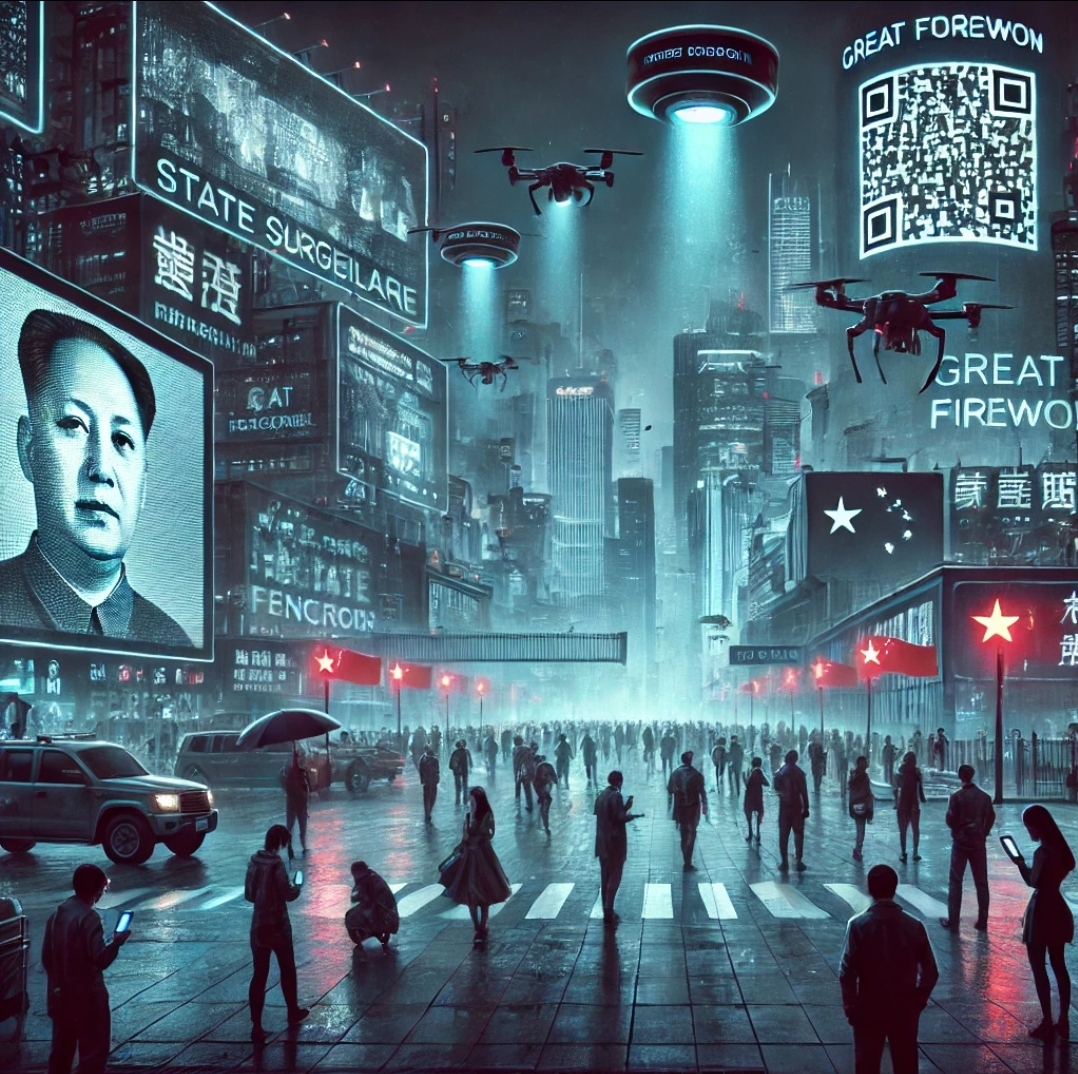China’s freedom crisis: A dismal 9 out of 100 score in 2025 World Freedom Report

China has once again found itself near the bottom of the global freedom rankings, scoring a dismal 9 out of 100 in the 2025 World Freedom Report.
Published annually by leading human rights organizations, this report evaluates nations based on civil liberties, political rights, freedom of speech, and press independence.
While China’s track record on human rights and freedoms has been criticised for decades, its score in 2025 underscores a worsening trajectory of repression, surveillance, and authoritarian control.
This alarming rating raises urgent questions about the future of freedom in China and the international community’s response.
Deepening crisis of repression
China’s abysmal score reflects the continued erosion of fundamental rights under President Xi Jinping’s rule.
Over the past decade, the Chinese Communist Party (CCP) has tightened its grip on nearly all aspects of society—censoring dissent, criminalising opposition, and using cutting-edge surveillance technology to monitor its citizens.
The 2025 score is an indictment of Beijing’s systematic dismantling of freedoms that many had hoped would improve as China integrated further into the global economy.
Among the key factors leading to this rating are intensified internet censorship, the suppression of ethnic minorities, and crackdowns on human rights defenders.
While China has never been considered a bastion of democracy, its trajectory toward more extreme authoritarianism in recent years has drawn widespread condemnation.
The internet: A digital prison
The Great Firewall of China has long been one of the most sophisticated internet censorship systems in the world. However, in 2025, Beijing has taken its control of the digital sphere to unprecedented levels.
New artificial intelligence (AI)-powered censorship tools, facial recognition technology, and predictive policing have made it nearly impossible for Chinese citizens to access unfiltered information.
Social media platforms are closely monitored, and even private conversations on messaging apps are subject to state surveillance.
The government has cracked down on VPN services, making it exceedingly difficult for citizens to bypass censorship.
China’s infamous Social Credit System, which ranks citizens based on their political and social behaviour, has further expanded, punishing those who engage in even minor acts of dissent.
Activists, independent journalists, and ordinary citizens alike have faced repercussions, from travel bans to job loss and even imprisonment, for expressing opinions that deviate from the state’s official narrative.
Hong Kong and Xinjiang: Examples of repression
Two regions have been particularly emblematic of China’s declining freedoms: Hong Kong and Xinjiang.
In Hong Kong, the National Security Law, imposed by Beijing in 2020, has all but eliminated the city’s autonomy.
Once a beacon of press freedom and civil liberties in Asia, Hong Kong has transformed into a state-controlled entity where pro-democracy voices are silenced, independent media is dismantled, and activists are jailed under vague accusations of “sedition” or “collusion with foreign forces.”
The arrests of journalists, scholars, and politicians have signalled that no dissent will be tolerated.
Xinjiang, meanwhile, remains a humanitarian crisis.
The Chinese government’s treatment of Uyghur Muslims has been condemned globally, with reports of mass detentions, forced labour, and re-education camps continuing to emerge despite Beijing’s claims of “deradicalisation programmes.”
Surveillance in Xinjiang is at an all-time high, with authorities using biometric data, AI-powered cameras, and constant police presence to control every aspect of daily life.
A silenced population: Decline of political rights
One of the major factors contributing to China’s low freedom score is the near-total elimination of political rights.
The CCP has made it clear that no opposition will be tolerated, even within the party itself.
Xi Jinping’s consolidation of power, including the removal of presidential term limits, has effectively cemented his rule indefinitely.
Elections in China are largely symbolic, as all candidates must be approved by the CCP.
Civil society organizations that promote democratic values are swiftly shut down, and those advocating for political reform are labelled as “foreign agents” and prosecuted under harsh laws.
The absence of an independent judiciary ensures that politically motivated arrests result in convictions, with little chance of fair trials.
Media control: Death of press freedom
China’s press landscape has suffered significantly under state control.
Independent journalism is virtually nonexistent, with all major media outlets operating as propaganda arms of the government.
Foreign journalists have been expelled, and domestic reporters are heavily censored, risking arrest if they deviate from the party’s narrative.
International news websites remain blocked, and Chinese citizens are bombarded with state-approved messaging designed to shape public opinion.
The government’s aggressive disinformation campaigns, both domestically and internationally, have made truth itself a battleground in China’s war against free expression.
The road ahead
The global response to China’s deteriorating human rights situation has been a mixture of condemnation and caution.
While Western nations have issued sanctions against Chinese officials responsible for human rights abuses, economic dependence on China has prevented stronger, more coordinated action.
The European Union, for example, continues to struggle with balancing trade interests and human rights advocacy.
Meanwhile, China has actively sought to reshape global norms on governance, using its economic influence to push authoritarian-friendly policies in international organisations.
The Belt and Road Initiative (BRI), while presented as an economic development programme, has also been a tool for China to expand its political reach, influencing nations to remain silent on Beijing’s human rights violations.
Despite the bleak outlook, history has shown that no authoritarian regime remains unchallenged forever.
China’s citizens, though heavily monitored, have not entirely lost their will to resist.
Underground networks of activists, digital dissidents, and exiled Chinese opposition figures continue to challenge Beijing’s narrative and push for reform.
The younger generation, many of whom are more globally connected than their predecessors, may play a crucial role in shaping China’s future.
While the CCP remains strong, public dissatisfaction—particularly with economic slowdowns, COVID-19 aftermath, and growing state overreach—could lead to increased pressure for change.
A defining moment for China
China’s 9/100 score in the 2025 World Freedom Report is not just a number—it is a warning sign of a nation deepening its descent into authoritarianism.
As the world watches, the question remains: will the Chinese people eventually reclaim their freedoms, or will Beijing’s iron grip tighten even further?
For now, the international community must decide how to respond.
Will world leaders continue to prioritize trade and diplomacy over human rights, or will they take meaningful action against one of the most repressive regimes of the modern era?
China stands at a crossroads but so does the rest of the world. The coming years will determine whether freedom in China has a fighting chance—or if the CCP’s Orwellian vision will become a permanent reality.




![From Kathmandu to the World: How Excel Students Are Winning Big [Admission Open]](https://nepalaaja.com/img/70194/medium/excel-college-info-eng-nep-2342.jpg)
